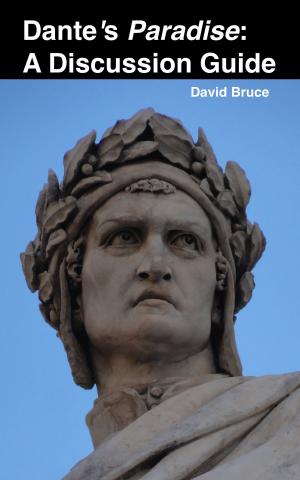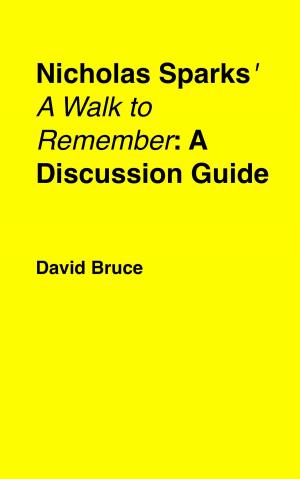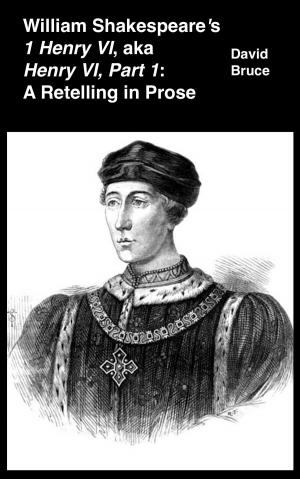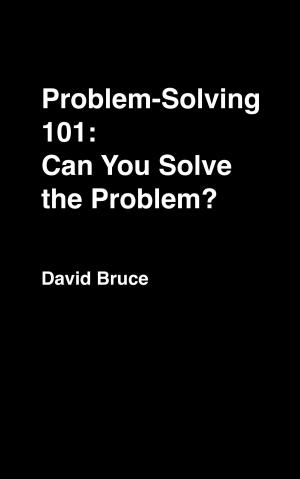The Coolest People in the Arts: 250 Anecdotes and Stories
Biography & Memoir, Entertainment & Performing Arts, Nonfiction, Entertainment, Humour & Comedy, General Humour| Author: | David Bruce | ISBN: | 9781476003054 |
| Publisher: | David Bruce | Publication: | May 8, 2012 |
| Imprint: | Smashwords Edition | Language: | English |
| Author: | David Bruce |
| ISBN: | 9781476003054 |
| Publisher: | David Bruce |
| Publication: | May 8, 2012 |
| Imprint: | Smashwords Edition |
| Language: | English |
Some Samples: 1) Despite his obvious high intelligence, Isaac Asimov could be absent-minded. When he was married to his first wife, he once took a bill to the gas company and complained about how much it was. He said, “We have never used enough gas to bring us up to the minimum. We have no children. We both work. We cook perhaps four meals a week. How can we possibly get a gas bill for $6.50? I demand an explanation.” The gas-company employee had a good explanation: “This is an electric bill.” By the way, television reporter Walter Cronkite once interviewed Mr. Asimov, who wanted to tell him, “My father will be very thrilled, Mr. Cronkite, when he finds out you’ve interviewed me.” However, he was afraid of sounding immature and so refrained from saying it. During a break in the filming, Mr. Cronkite said to Mr. Asimov, “Dr. Asimov, my father will be very thrilled when he finds out I’ve interviewed you.” 2) • Charles Dana Gibson received a lot of money for his illustrations. He once received a letter from a car company, which stated, “You are cordially invited to participate in our grand $100 prize contest. Each participant may submit one or more drawings advertising our automobile. The winner will receive a grand cash prize of $100. Drawings must be sent prepaid, and must be original, and all unsuccessful drawings will remain the property of the undersigned.” Mr. Gibson received much more than $100 for one of his drawings, so this contest was laughable to him. He wrote this letter in reply to the car company: “You are cordially invited to participate in my grand $10 automobile contest. Each participant may submit one or more automobiles and the winner will receive a grand prize of $10. The automobiles submitted must be brand new and shipped [at your cost to] New York. They must be fully equipped. The unsuccessful automobiles will remain the property of the undersigned. Charles Dana Gibson.” 3) • Soprano Emma Eames was often asked to sing at benefits, and occasionally she got annoyed at society ladies who expected much for charity from her but little from themselves. She once made a proposal to some such society ladies who asked her to perform free at a benefit concert: “I will, on one condition. You are all wealthy ladies, far wealthier than I. Now, my usual [fee for singing] is £300. I will contribute that by singing, on condition that each of you will sign for the same amount.” The society ladies said that they would think about it, and they did not bother her again. Music critic Henry T. Finck, a friend to Ms. Eames, wrote in My Adventures in the Golden Age of Music, his autobiography, “The charity of society women too often resembles Mark Twain’s climbing of the Swiss mountains—by proxy.” Ms. Eames was an independent spirit who was not afraid of offending people. She once said to Mr. Finck’s wife, “I love to give parties for the pleasure of leaving out certain persons who want to come.”
Some Samples: 1) Despite his obvious high intelligence, Isaac Asimov could be absent-minded. When he was married to his first wife, he once took a bill to the gas company and complained about how much it was. He said, “We have never used enough gas to bring us up to the minimum. We have no children. We both work. We cook perhaps four meals a week. How can we possibly get a gas bill for $6.50? I demand an explanation.” The gas-company employee had a good explanation: “This is an electric bill.” By the way, television reporter Walter Cronkite once interviewed Mr. Asimov, who wanted to tell him, “My father will be very thrilled, Mr. Cronkite, when he finds out you’ve interviewed me.” However, he was afraid of sounding immature and so refrained from saying it. During a break in the filming, Mr. Cronkite said to Mr. Asimov, “Dr. Asimov, my father will be very thrilled when he finds out I’ve interviewed you.” 2) • Charles Dana Gibson received a lot of money for his illustrations. He once received a letter from a car company, which stated, “You are cordially invited to participate in our grand $100 prize contest. Each participant may submit one or more drawings advertising our automobile. The winner will receive a grand cash prize of $100. Drawings must be sent prepaid, and must be original, and all unsuccessful drawings will remain the property of the undersigned.” Mr. Gibson received much more than $100 for one of his drawings, so this contest was laughable to him. He wrote this letter in reply to the car company: “You are cordially invited to participate in my grand $10 automobile contest. Each participant may submit one or more automobiles and the winner will receive a grand prize of $10. The automobiles submitted must be brand new and shipped [at your cost to] New York. They must be fully equipped. The unsuccessful automobiles will remain the property of the undersigned. Charles Dana Gibson.” 3) • Soprano Emma Eames was often asked to sing at benefits, and occasionally she got annoyed at society ladies who expected much for charity from her but little from themselves. She once made a proposal to some such society ladies who asked her to perform free at a benefit concert: “I will, on one condition. You are all wealthy ladies, far wealthier than I. Now, my usual [fee for singing] is £300. I will contribute that by singing, on condition that each of you will sign for the same amount.” The society ladies said that they would think about it, and they did not bother her again. Music critic Henry T. Finck, a friend to Ms. Eames, wrote in My Adventures in the Golden Age of Music, his autobiography, “The charity of society women too often resembles Mark Twain’s climbing of the Swiss mountains—by proxy.” Ms. Eames was an independent spirit who was not afraid of offending people. She once said to Mr. Finck’s wife, “I love to give parties for the pleasure of leaving out certain persons who want to come.”















